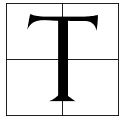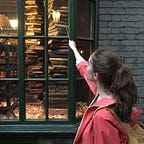The Ironic History of ‘It Was a Dark and Stormy Night’
The origin of the stereotypical example of “bad writing”
“It was a dark and stormy night...”
 The infamous line begins the beloved classic published in 1973, A Wrinkle in Time by Madeleine L’Engle. The book is not only the first of The Time Quartet series but also won the John Newbery Medal from the Association for Libraries Services for Children.
The infamous line begins the beloved classic published in 1973, A Wrinkle in Time by Madeleine L’Engle. The book is not only the first of The Time Quartet series but also won the John Newbery Medal from the Association for Libraries Services for Children.
Another famous and well-loved story also includes the sentence. Some English translations of The Three Musketeers by French author Alexandre Dumas interpret the first line “C’etait une nuit orageuse et sombre” as “it was a dark and stormy night” (however, the more exact translation of this phrase would be “it was a stormy and dark night”).
Curiously, despite the positive recognition of these novels, dark and stormy nights are seen as lazy and poor writing, due to their original literary root.
The Original Reference
Though the trope of beginning a story on a stormy night is centuries old, the first believed written iteration of the line originates from the first page of Edward Bulwer-Lytton’s 1830 novel Paul Clifford:
“It was a dark and stormy night; the rain fell in torrents, except…
